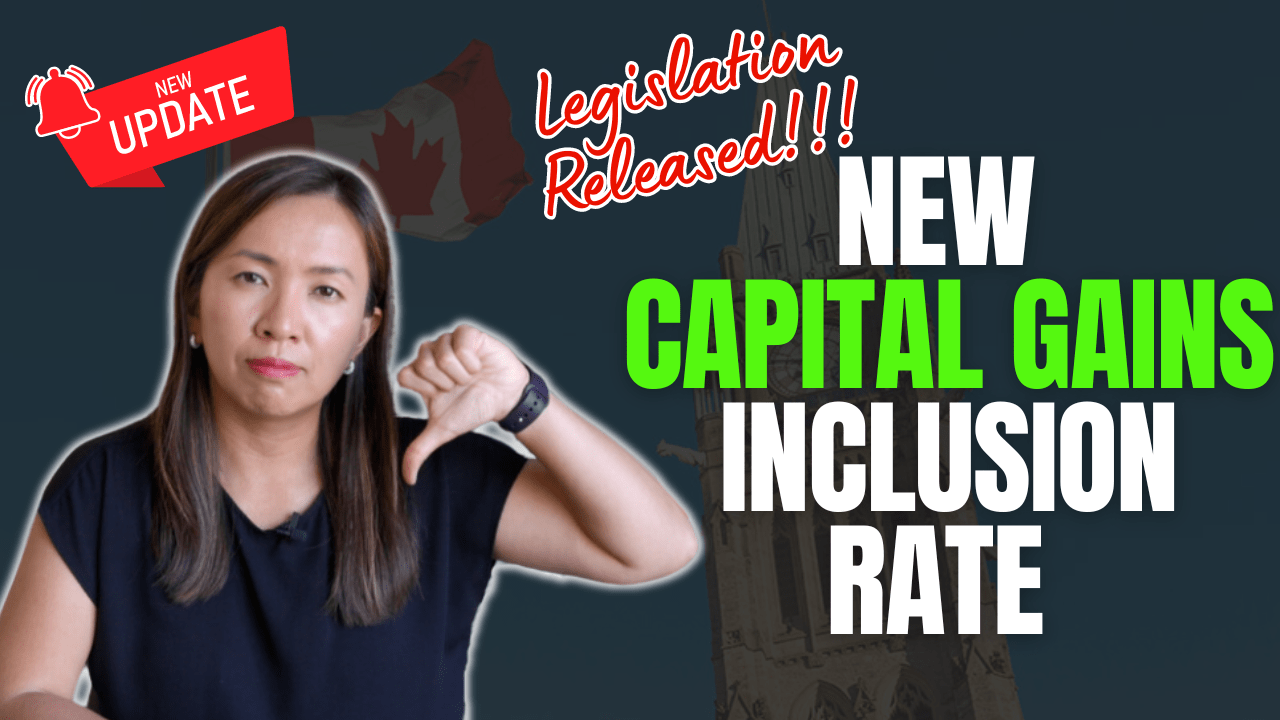Have you ever wondered if earning income through a corporation means paying twice the amount of taxes compared to individuals who earn income in their personal name?
This common misconception, often referred to as double taxation, has misled many individuals. However, understanding the concept of tax integration reveals that owning a corporation does not result in double taxation. In fact, it can lead to potential tax savings.
In this blog post, we will explore the Canadian tax system’s design for tax integration and how it can benefit small business owners.
Contrary to popular belief, there is no such thing as double taxation when it comes to earning income through a corporation. Owning a corporation does not mean paying double the amount of taxes compared to owning property directly in a personal name. The percentage of taxes paid may vary depending on the tax system and rates in place.
Canadian Tax System and Tax Integration:
The Canadian tax system is designed with tax integration in mind. Tax integration ensures that individuals pay a similar amount of tax whether they own a business in their personal name or through a corporation. To illustrate this concept, let’s consider an individual who earns employment income and starts a side hustle. You can also watch my Youtube video where I explain it in detail
Imagine a taxpayer who earns $100,000 from employment income. They also start a side hustle, generating a net income of $50,000. If this individual chooses to report all their income in their personal name, the $100,000 employment income would already incur a tax liability of approximately $22,000. Adding the additional $50,000 from the side hustle to their personal income would trigger an additional tax liability of around $21,658. In total, the taxpayer would owe roughly $44,000 in personal income tax.
Now, let’s consider an alternative scenario where the taxpayer chooses to earn their side hustle income through a corporation. In Ontario, active small business income within a corporation is subject to a tax rate of 12.2%, which is significantly lower than the tax rate for personal income. If the same taxpayer earns the $50,000 side hustle income within a corporation, they would only need to pay $6,100 in corporation tax.
After paying the corporation tax, the remaining amount of $43,900 can be distributed to the taxpayer’s personal name as dividend income or taken out as a salary. It’s important to note that withdrawing money from a corporation has its own tax implications, as the corporation is considered a separate legal entity. However, our tax system is designed to account for this, ensuring that you are not taxed twice for the same income.
Earning Income in a Corporation:
Earning income in a corporation can actually result in a lower tax liability compared to earning income in one’s personal name. When income is earned personally, it often triggers a higher tax liability. However, active small business income earned in a corporation is subject to a reduced tax rate, such as the 12.2% rate in Ontario.
Understanding Corporation Tax Rate:
Corporations are considered separate legal entities and are subject to different taxation rules. For small businesses with net income up to $500,000, the tax rate is 12.2%. By structuring their business inside a corporation and distributing income as dividends or salary, taxpayers can save on taxes.
Balancing Personal and Corporation Taxes:
Tax integration ensures that personal and corporation taxes are balanced. When dividends are received from a corporation, they are added to the individual’s personal income. The tax system provides a larger credit to account for taxes already paid within the corporation.
Keeping Dividends Inside the Corporation:
Small business owners have the flexibility to keep dividends inside the corporation to invest and avoid personal income tax. While tax integration assumes immediate dividend withdrawal, owners can choose not to take dividends out immediately. These retained earnings can be reinvested in the business, real estate, or the stock market, potentially generating a return.
Splitting Income with Future Self:
One strategy that can lead to significant tax savings is splitting income with one’s future self. By deferring dividend income to a year with no employment income, individuals can reduce their personal taxes while the corporation tax rate remains the same. This deferral allows individuals to take advantage of lower personal tax brackets.
Potential Tax Savings through Income Splitting:
By reporting dividends in a different year in one’s personal name, individuals can save up to $13,000 in taxes. Income splitting planning can be done with a significant other or lower-income family member, but it is crucial to consult with a professional accountant to navigate potential traps and ensure compliance with tax regulations.
Understanding tax integration is essential for debunking the myth of double taxation. Owning a corporation does not result in paying twice the amount of taxes compared to earning income in a personal name. The Canadian tax system is designed to balance personal and corporation taxes, allowing small business owners to save on taxes through strategies such as keeping dividends inside the corporation and splitting income with their future selves.
Until next time, happy Canadian Real Estate Investing.
Cherry Chan, CPA, CA
Your Real Estate Tax Accountant





